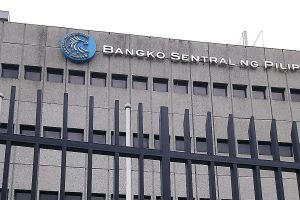BSP seeks to tighten rules on reporting threats

THE BANGKO SENTRAL ng Pilipinas (BSP) is looking to tighten its guidelines on risk reporting and notification requirements of financial institutions to improve the management of money laundering (ML), terrorist financing (TF), and proliferation financing (PF) risks.
The central bank’s proposed changes include the adoption of proportionate mechanisms in detecting threats or key sources of ML/TF/PF risks, which may warrant reporting to the senior management of BSP-supervised financial institutions (BSFIs) and to the BSP.
The draft rules posted on the BSP’s website amend section 911 of the Manual of Regulations for Banks (MORB) and section 911-Q of the Manual of Regulations for Non-Bank Financial Institutions (MORNBFI).
Stakeholders are given until Jan. 31 to give their feedback on the proposed circular.
“The sound management of ML/TF/PF risks is critical in ensuring the sustained resilience and integrity of the financial system in general as well as the safety and soundness of the BSFIs in particular,” the BSP said.
The central bank added that timely collection and analysis of relevant data is a critical component of a BSFI’s risk assessment and management process.
“In this regard, BSFIs shall submit regular and event-driven ML/TF/PF-related reports covering data on their current ML/TF/PF risk and context information as well as significant risk events arising from ML/TF/PF-related incidents or activities that may have a material effect to the BSFI and/or the financial system,” the BSP said.
“These reports shall enable the Bangko Sentral to proactively and holistically identify and assess the BSFI’s current level and direction of risks relating to ML/TF/PF and the extent of the sector’s vulnerabilities to ML/TF/PF activities,” it added.
Under the draft rules, financial institutions must submit an annual Anti-Money Laundering/Countering the Terrorism and Proliferation Financing Reporting Package (ARP) and a risk event report if an incident occurs.
Financial institutions will be required to submit an ARP within 30 banking days after the end of the reference year to the appropriate BSP department.
The central bank will also deploy enforcement actions to promote adherence to the reporting requirement. An ARP considered as “erroneous, delayed, and/or unsubmitted” will be subjected to penalties.
“The initial submission of the Annual ARP with reference year 31 December 2022 shall be due on 30 June 2023. Subsequent submissions of the Annual ARP shall follow the prescribed timeline provided in this circular,” the BSP said.
On the other hand, upon effectivity of the draft circular, BSFIs would need to notify the BSP within 24 hours if an incident related to ML/TF/PF occurs by submitting a Risk Event Report. This will cover any incident that may pose a negative impact on the BSFI and the financial system.
“This shall enable the Bangko Sentral to have accurate and timely information on current ML/TF/PF risk and context information as well as significant risk events arising from ML/TF/PF-related activities and/or transactions as part of its risk-based anti-money laundering and countering the terrorism and proliferation financing supervision,” the BSP said.
“Monetary and non-monetary sanctions, as provided under existing laws, Bangko Sentral rules and regulations, may likewise be imposed on the BSFI and/or its directors, officers and/or employees for violation of the reporting requirements,” it added.
The Financial Action Task Force (FATF) has given the Philippines until this month to address strategic deficiencies to counter money laundering and terrorist and proliferation financing.
The FATF put the country in its “gray list” or jurisdictions under increased monitoring for “dirty money” risks in June 2021. — Keisha B. Ta-asan




